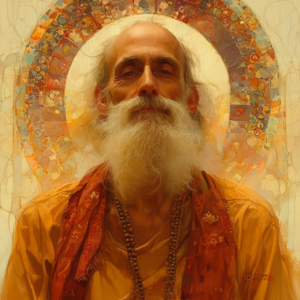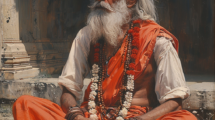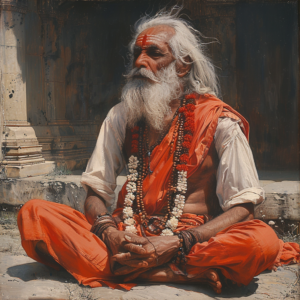Introduction to Ram Dass
Ram Dass is an American-born spiritual teacher and author whose real name is Richard Alpert. He is known for his work on consciousness expansion, spirituality, Eastern philosophies, and promotion of cognitive-behavioral psychotherapies in the western culture. During the 1960s and 70s, he was part of the counterculture movement in the United States and became associated with Harvard psychology professor Timothy Leary.
Ram Dass is best known for his two books: Be Here Now (1971) and Grist for the Mill (1977). He has also written several other works such as Journey of Awakening: A Meditator’s Guidebook (1982), Still Here: Embracing Aging, Changing, and Dying (2001), and One-Liners: A Mini Handbook for Spiritual Growth (2005). In Be Here Now, he shares his story of drug experimentation at Harvard University under Leary to a profound spiritual awakening which happened during a journey to India. In it, Ram Dass explains his teachings on yoga philosophy and meditative practices that serve to benefit one’s conscious awareness.
Throughout his career, Ram Dass has become one of most influential American spiritual teachers due to its compassionate attitude towards others and understanding of different faiths. His personal journey serves as an inspiration to people around the world. He has shared many stories of inspiring moments from his life lessons which are known by many admirers worldwide.
Ram Dass Early Life
Ram Dass was born Richard Alpert in 1931 to a Jewish family in Boston, Massachusetts. His father was George Alpert, a highly successful attorney and president of the New York, New Haven and Hartford Railroad. As a young boy Ram Dass grew up within an environment of privilege, status and education. His schooling began at Andover where he excelled in math and science without ever having to apply himself — his brilliance leading him to become class valedictorian at age 16.
After enrolling in the elite university at Harvard for his doctorate degree, Ram Dass had a breakthrough moment that shaped the course of his life when he read the Hindu scripture — The Bhagavad-Gita — at age 25. He quickly developed an interest in Eastern religions that resulted in him traveling through India, Nepal and other parts of Asia to deepen his knowledge. During this spiritual journey Ram Dass became profoundly committed to understanding the nature of consciousness and devoted himself to following a path toward enlightenment with timeless Eastern masters as mentors. This spiritual journey also exposed him to psychedelic substances, including LSD which further enhanced his understanding of mysticism and meditation.
The encounters during Ram Dass’ travels marked moving milestones on his path towards self-discovery and deepened his appreciation for meaningful living—which remained central focuses during has remaining years of exploration and teaching about spirit-centered living until his death in 2019.
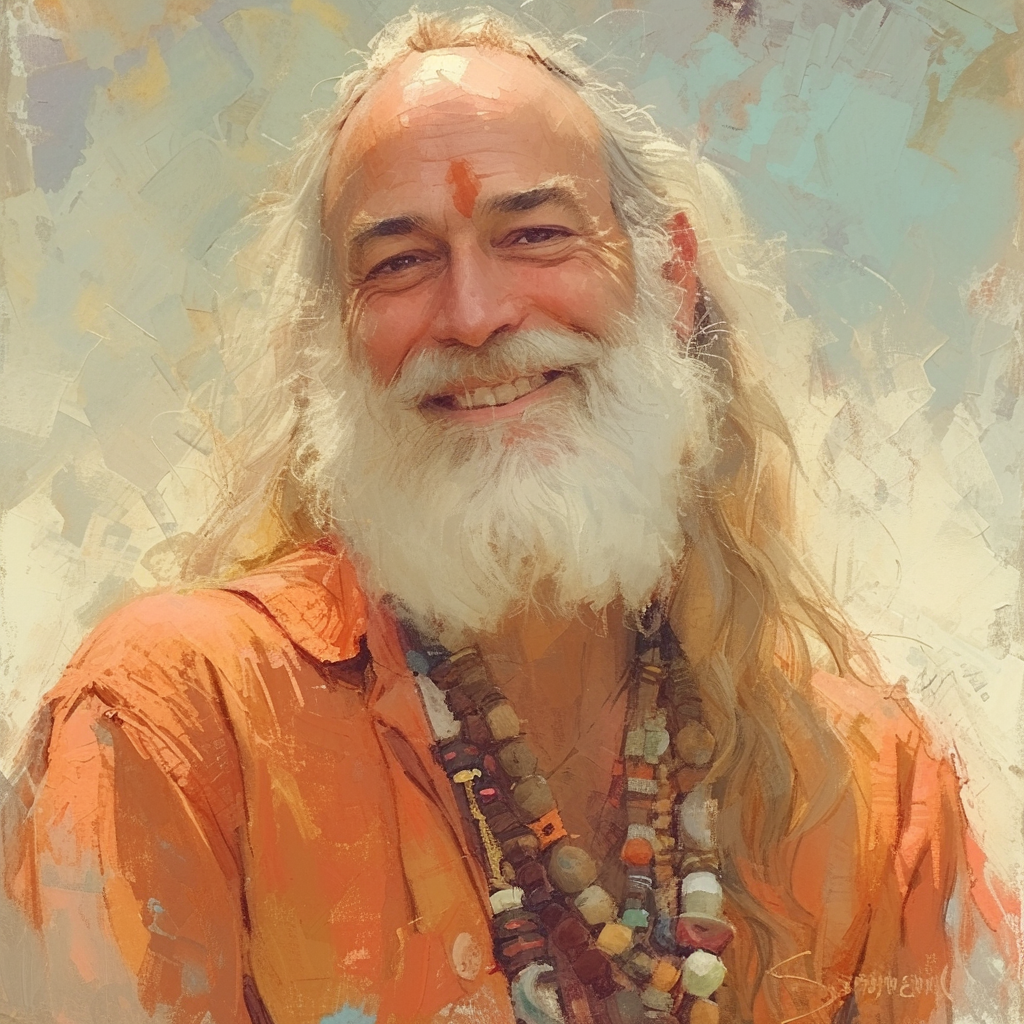
Ram Dass Spiritual Journey
Ram Dass, born as Richard Alpert, began his spiritual journey in the 1960s at Harvard University. He was an influential figurehead who taught courses on Eastern philosophy and culture and conducted research with psychedelics such as LSD and psilocybin that changed the way he perceived himself and reality. His groundbreaking work challenged the status quo of Harvard and got him dismissed. After leaving Harvard, his travels took him to India where he befriended Neem Karoli Baba–with whom he developed a strong spiritual bond–and became initiated into Maharaj Ji’s Divine Light Mission in order to bring back the teachings of yoga, meditation, Bhakti yoga and karma yoga to Westerners. After returning to America life took off even further for Ram Dass as he launched a series of books which revealed his insights on self-realization including “Be Here Now”- which has become one of the most cited works ever written about spirituality. He has also created a popular podcast containing daily doses of wisdom designed to set individuals onto their own paths of understanding and growth. The essence behind his teachings lies within becoming actively compassionate observers during all moments—in both good times and bad times—through seeing ourselves as souls traveling through this journey called life. Ram das strongly emphasizes that we are interconnected –whether it is through our lineage or through our collective humanity– ultimately finding truths outside of organized religion or dogmatic beliefs
Ram Dass Use of the Eastern Practices
Ram Dass is an American spiritual teacher and activist who has studied and adapted traditional Eastern religions and practices for Western understanding and audiences. He famously traveled to India in 1967 to study Hinduism and Buddhism, as well as Vipassana meditation techniques. He encountered a guru, Neem Karoli Baba Maharajji, who encouraged him to devotely pursue his spiritual quest that would eventually lead him to travel around the world and become the beloved spiritual teacher we know today.
Although most of Ram Dass’s teachings are rooted in Eastern tradition and practice, he emphasizes adapting them in a way that’s accessible and compatible with modern western culture. For example, one of his famous quotes is “If you think you’re enlightened, go spend a week with your parents.” This encapsulates how Ram Dass seeks to balance his adopted Eastern traditions of mindfulness, awareness and spirituality with the realities of daily life in the West.
In addition to taking on teachings from Hinduism, Buddhism, Tantra Yoga amongst other disciplines, Ram Dass has taken it upon himself to share transformative psychological techniques from techniques like Gestalt Therapy which encourages individuals to take responsibility for their lives and feelings. Combining together both classical Eastern spiritual teachings alongside modern Western therapeutic practices allows Ram Dass compassionately reach everyone seeking advice throughout life’s journey.
Ram Dass Writings and Teachings
Ram Dass was an influential spiritual teacher, advocate, and lecturer whose writings and teachings have impacted millions. He was a former Harvard professor who bridged Eastern and Western philosophy, introducing spiritual practices such as meditation to the west.
Much of Ram Dass’ work focused on uniting all people through compassion, loving-kindness and service. He believed the central goal should be to create stronger relationships between individuals that foster connectedness and togetherness. He encouraged people to build relationships with their divine nature as well, believing this would in turn facilitate bonds with others around them.
In addition to his focus on building relationships between all beings, Ram Dass also wrote extensively about the importance of helping those who are suffering. One of Ram Dass’ primary messages was that through service we learn joy and can free ourselves from attachment and egoism; this is how true peace is obtained.
Aside from his books, workshops and lectures which were dedicated to creating meaningful connections between self and God, he also founded a foundation called Seva (Service) which focuses on providing medical assistance in India, Nepal and Tibet among other locations worldwide. By creating this organization he hoped to encourage selfless acts of volunteerism for those less fortunate through social justice outreach programs.
Ultimately, Ram Dass’s teachings revolved around community; what it means to live spiritually in a supportive environment with both self-reflection and consideration of others in mind.
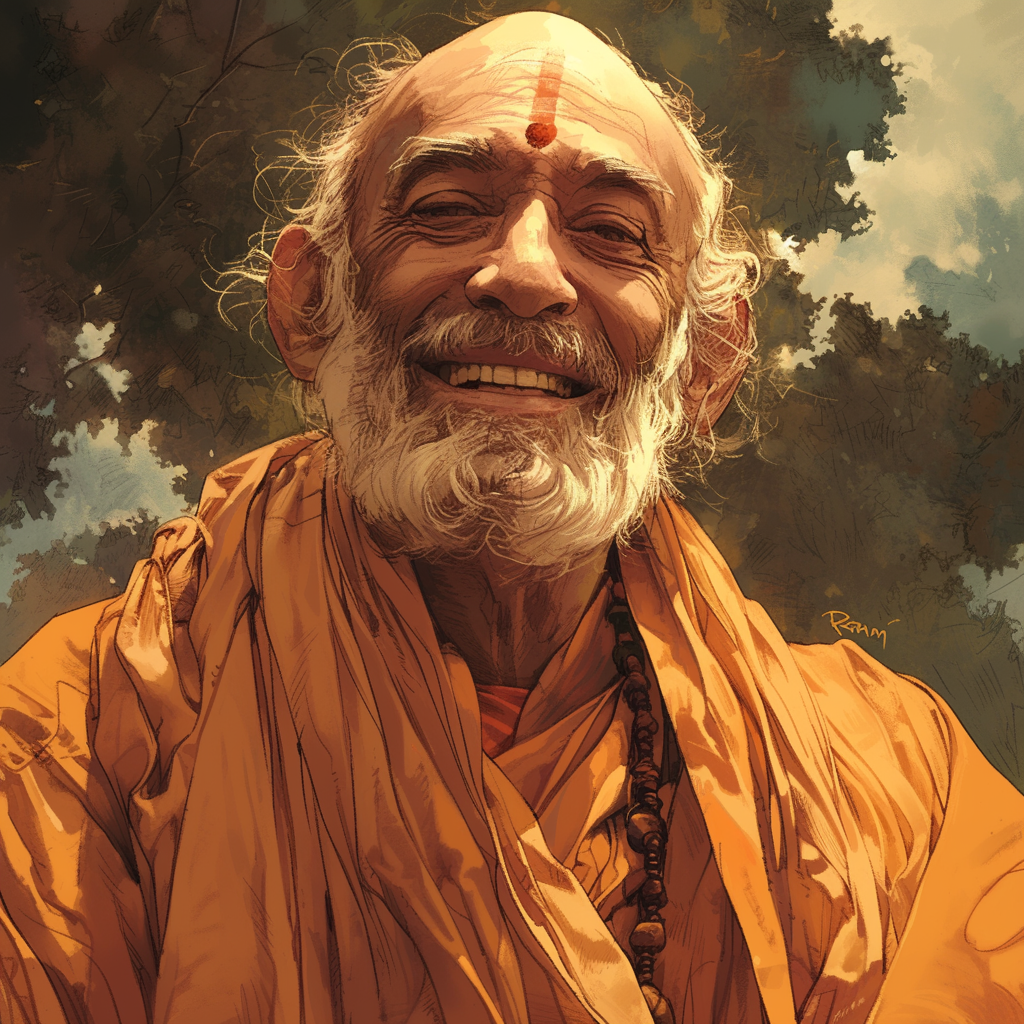
Ram Dass Legacy
Ram Dass, born Richard Alpert in 1931, was an American spiritual teacher, psychedelic pioneer, and social activist. Although he first became famous for his controversial LSD experiments with colleague Timothy Leary in the 1960s, he had a remarkable spiritual transformation during his visit to India in 1967. After that experience, he committed himself to exploring outer and inner consciousness through writing, teaching, psychotherapy and sharing his stories of meditation and enlightenment.
Ram Dass’s words and teachings have become a source of insight and comfort for those seeking spiritual knowledge. He is especially known for his books “Be Here Now” and “Grist for the Mill” which provided guidance on mindfulness practices as well as socially conscious action. His talks focused mostly on breaking down barriers between Eastern & Western cultures while promoting living a life of service and love to all beings. Ram Dass also actively encouraged people to work together toward common goals and to create positive change within their communities on both a local level as well as a global one.
At the age of 88, Ram Dass passed away in 2019. However, his legacy lives on in many ways; there are organizations like the Love Serve Remember Foundation dedicated to preserving Ram Dass’s wisdom which has covered many topics such as Hinduism/Buddhism intersectionality/devotional practices; service-based programs encouraging volunteership; nonprofit organizations that are transforming education systems by fostering kindness through technology solutions; online programs devoted to teachings about mindful eating practices among others. In addition, Ram Dass’s teachings can be found everywhere from marketing material slogans to musical lyrics inspiring artists around the world—a testament to the impact he has made on so many lives with respect & contemplation for life experience.
Conclusion
Ram Dass was a spiritual teacher whose life and teachings emphasized living authentically and in love. He taught that love requires presence and compassion in all relationships, with ourselves and our fellow human beings. In his famous words, “we are all just walking each other home.” He lived by the example of finding his own truth through meditation and self-examination, while still engaging with others in deep conversations that could lead to personal growth. His call to action was clear: focus on what truly matters, be kind and open-hearted to everyone you encounter, live consciously, and embrace all aspects of life with joy.

